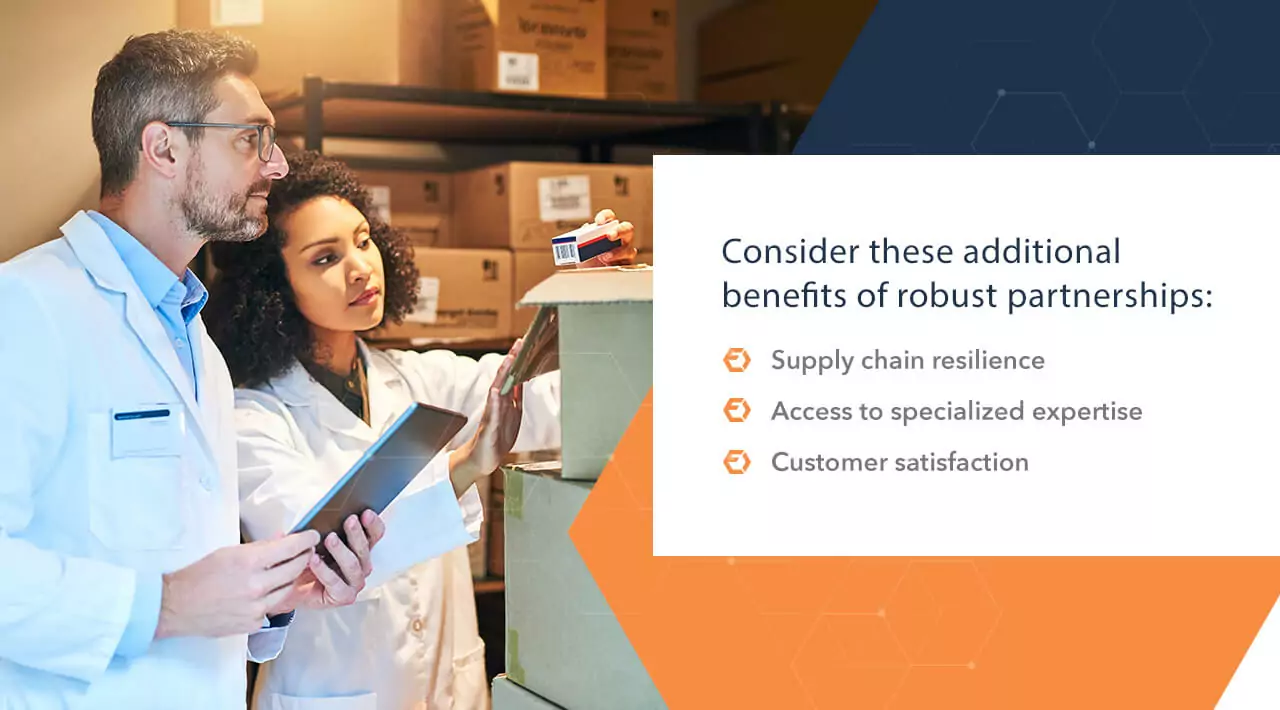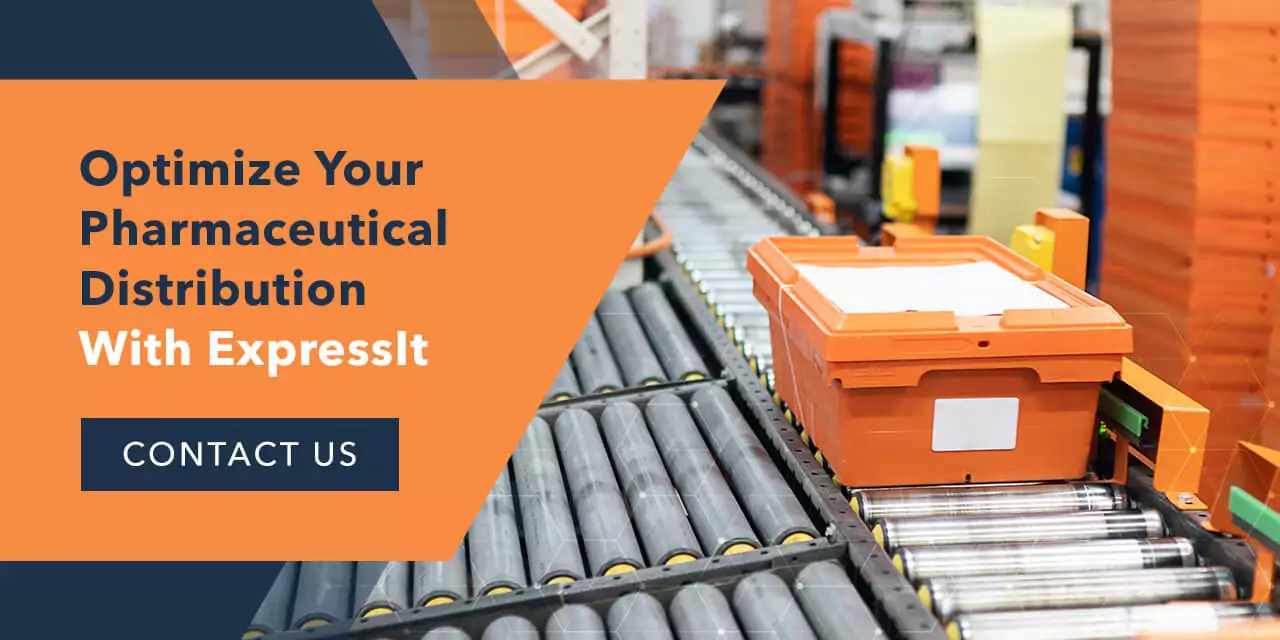As a manufacturer or provider in the health care industry working with pharma distribution, you want to ensure the safe and efficient delivery of medications to other health care providers, patients and pharmacies. Some pharmaceutical products are time- or temperature-sensitive, which poses significant challenges in maintaining their integrity during transit. You also want to limit the potential risks associated with delays and mishandling, such as medication spoilage.
Let’s explore successful ways to optimize pharmaceutical distribution processes and how on-call dispatch support can improve the typical challenges in the pharmaceutical distribution chain.
Challenges in Pharmaceutical Industry Distribution Systems
The pharma industry faces several hurdles in its distribution systems that can impact medication deliveries.
- Temperature control: Many pharmaceutical products, especially vaccines, are sensitive and require strict temperature control throughout the distribution process. Maintaining cold chain delivery systems helps preserve these products in transit.
- Regulatory compliance: The pharmaceutical industry is subject to strict guidelines and standards that companies must adhere to when distributing medication. Complying with regulations such as Good Distribution Practice ensures product integrity throughout the supply chain.
- Supply chain visibility: Limited traceability in the supply chain can lead to delays and difficulties in tracking pharmaceutical products from the manufacturer to the user. This lack of real-time data and transparency can hinder your decision-making and risk management.
- Last-mile delivery challenges: Last-mile deliveries present unique challenges like wayfinding in complex urban environments, managing multiple delivery points and ensuring timely deliveries to the correct addresses.
- Security and privacy: With more couriers using technology, data security and patient privacy are becoming a concern. Safeguarding sensitive information prevents breaches and protects confidentiality.
Best Practices for Optimizing Pharmaceutical Distribution
Pharmaceutical companies can improve their delivery time and accuracy by using smart strategies to optimize distribution channels. These five best practices will help prevent delays, reduce errors and ensure careful medication handling throughout the process.
1. Implement Technology for Efficient Medication Deliveries
Implementing advanced solutions can streamline your pharma distribution process in the following ways.
- Tracking: Cutting-edge tracking technology, like radiofrequency identification, GPS tracking and barcoding, can provide the most accurate information to improve inventory management or trace products in transit.
- Temperature monitoring: Real-time monitoring systems maintain optimal conditions for temperature-sensitive medicines during storage and transportation.
- Automation: Leverage automation for order processing, dispatch coordination and customer notifications to streamline the process and improve client satisfaction.
- Cloud computing and data analytics: Monitoring and data analysis across the supply chain help pharmaceutical companies comply with regulations and keep up with documentation and reporting.
- Blockchain technology: Blockchain offers secure, unaltered transaction records for enhanced traceability and transparency in the medicine supply chain.
- Machine learning: Artificial intelligence and machine learning can predict demand, optimize inventories and detect patterns and anomalies.
2. Establish Partnerships Within the Supply Chain
Partnerships foster communication among stakeholders, including manufacturers, distributors, logistics providers and health care facilities. This collaboration enables everyone to share information and resources, leading to more efficient processes.
Consider these additional benefits of robust partnerships.
- Supply chain resilience: Pharmaceutical companies can streamline operations, reduce redundancies and optimize processes by working closely with others, resulting in faster order fulfillment, reduced lead times and cost savings.
- Access to specialized expertise: Partnering with experts in different parts of the supply chain, such as logistics and warehousing, allows companies to take advantage of specialized knowledge and capabilities to improve their performance.
- Customer satisfaction: Effective partnerships contribute to better customer service by enabling timely deliveries, accurate order fulfillment and seamless communication with recipients. Satisfied customers are more likely to remain loyal and recommend your company’s pharmaceutical products to others.
3. Collaborate With Logistics Providers to Streamline Operations
Distribution processes may seem straightforward, but the health care industry can be intricate. Collaborating with courier delivery and logistics providers with experience handling pharmaceutical products can streamline your operations in several ways.
- Trustworthy specialists: Logistics employees know how to handle your precious or time-sensitive deliveries in compliance with all necessary regulations. Some providers have on-call dispatch support to provide updates and constant communication.
- Standardized warehousing: Many logistics companies use standardized warehousing techniques to store and transport pharmaceutical items.
- Efficient transportation: Logistics providers have established transportation networks, resources and infrastructure. Partnering with them enables you to access optimized routes, transport modes and reliable delivery schedules, which may lead to faster and more cost-effective transportation services.
- Flexibility: Logistics providers can offer scalable solutions to accommodate fluctuating demand or seasonal variations in pharmaceutical distribution without investing in additional resources.
4. Ensure Regulatory Compliance and Quality Assurance
Pharmaceutical distribution services are subject to various regulations and quality assurance standards to ensure pharmaceutical products’ safety, efficacy and integrity throughout the distribution process. Here are some regulatory requirements pharmaceutical distributors must comply with.
- Storage: The Food & Drug Administration requires pharmaceutical warehouse contamination prevention measures like temperature control, ventilation and reduced light exposure.
- Distribution: Good Distribution Practice is a set of European guidelines that dictate the proper distribution of medicinal products, including maintaining specified temperature ranges during storage and transit by investing in cold chain logistics.
- Drivers: Drivers must comply with the Health Insurance Portability and Accountability Act to protect sensitive patient health information when transporting pharmaceutical products. HIPAA compliance ensures confidentiality and integrity when handling data.
- Fleet preparedness: Delivery vehicles should have personal protective equipment and spill kits on board in case of incidents or spillage.
5. Use the Right Delivery Method in Your Pharmaceutical Distribution Process
Health care delivery service providers use one or more of the following delivery methods to ensure pharmaceutical products reach their destination safely and on time.
- Courier delivery for non-urgent medications and routine deliveries within a specified time frame
- Same-day delivery for time-sensitive distribution needs
- Routed delivery for pre-scheduled shipments
- Last-mile delivery to take goods from a warehouse, fulfillment center or store to their final destination
- Customized delivery to meet any other needs, such as cold chain logistics
Optimize Your Pharmaceutical Distribution With ExpressIt
Streamlining your pharmaceutical distribution processes ensures quick, reliable medication deliveries, especially for time-sensitive prescriptions or critical health care situations. Careful temperature control also maintains pharmaceutical products’ quality and integrity.
ExpressIt provides customized logistics to cater to your pharma distribution needs. With our range of delivery services and on-call dispatch, you can transport medicines in optimal conditions without delays.
Get in touch with our team for more information on how we can help you or to schedule a delivery.



